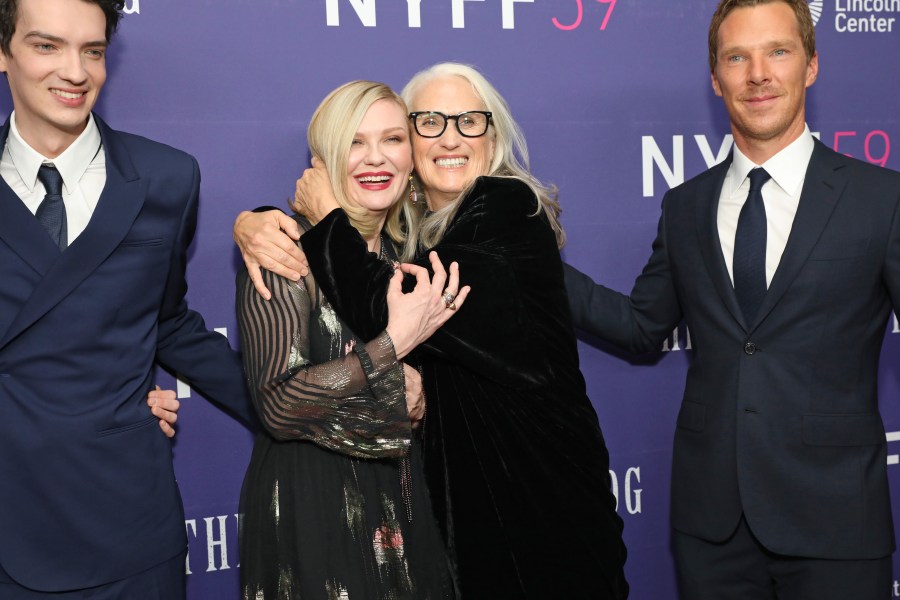
Awards season 2022 is in full swing, which means we’re experiencing that time of the year that tends to kick off in the fall with the release of trophy-bait titles and the gathering of film critics at festivals. This period then encompasses the nominations and awards ceremonies for most of the big shows, culminating with the Oscars. The nominations are already out for the Screen Actors Guild (SAG) Awards, the Film Independent Spirit Awards and the Critics Choice Awards. We’re still waiting for nominations for the Oscars, NAACP Image Awards, the Writers Guild Awards (WGA) and BAFTAs, among a few others.
(And no, I didn’t forget to include the Golden Globes. The Hollywood Foreign Press Association (HFPA), the organization behind the Globes, has been mired in controversy for years. Within the industry, the organization has lacked credibility due to its obscurity, size — only around 80–100 members — and manner of operating. Several reports from the LA Times and The New York Times in 2021 pointed at ethical lapses and self-dealing within the HFPA.)
When it comes to nominations and possible winners in all of the main ceremonies, but especially the Oscars, some titles have been garnering attention for months now, since they first premiered at the Toronto International Film Festival (TIFF), the New York Film Festival, Venice or Telluride. It will be a big surprise if Jane Campion’s The Power of the Dog, Steven Spielberg’s West Side Story and Kenneth Branagh’s Belfast don’t snag at least a few Oscar nominations come February 8. Denis Villeneuve’s Dune should also get some love, even if in the end it’s only for its technical achievements.
Also shortlisted to get nominations are a few other big names like Will Smith for his role in King Richard, Benedict Cumberbatch for The Power of the Dog and Olivia Colman for The Lost Daughter. You can take a look at our list of Oscars predictions and early contenders for some of the main categories.
How Does Awards Season Work?

I guess you may be wondering how we got to this point. For example, how do we know The Power of the Dog is primed for a lot of awards’ love but Free Guy or Venom: Let There Be Carnage aren’t? Genre matters. Historical dramas, heady book adaptations and satirical commentaries à la Don’t Look Up do better among critics and trophies’ voters than comedies, comic-book adaptations or science-fiction films. Timing also matters. For a distributor to indicate they trust the awards potential of a film, they preferably have to slate its release in the fall, so that it stays fresher in voters’ memories. Nothing says “this movie isn’t awards’ material” like an initial release date in the fall that gets pushed back to the winter or spring of the following year.
Nothing is set in stone though. One of this year’s indie darlings, CODA, debuted at Sundance in January of last year, was acquired by Apple TV+ for a record $25 million, and premiered on the streamer in August.
Needless to say, COVID-19 has upended awards season again. For the last two years, I’ve attended TIFF virtually. The Canadian festival is a perfect occasion to savor some of the many offerings of the year and see which ones are good and which are just a promising premise with a great director and stellar cast but not exactly good.
I’d say I watched 80–90% of films I was reviewing or considering for awards nominations at home this year. Critics and voters receive digital screeners and DVDs of most of the releases being pushed for awards. And no, I don’t share the opinion that as movie critics we should be forced to go back to the theater to do our jobs. Streaming has made press viewings of films more accessible, especially for minority journalists, younger critics, writers with disabilities, those who don’t live in major markets, and freelancers who can’t afford to travel to festivals. Virtual festivals and press screeners mean more access and, with it, more diversity in criticism.
Beyond the quality of the film itself, a studio’s promotional efforts are key to getting buzz. It’s what makes it possible to get your title known and ensure professionals in the industry watch the movie. I prefer watching as much stuff as possible as soon as possible. But by December there’s a bottleneck of last-minute screeners being sent and sometimes there’s not enough time to watch everything. I’m still playing catch-up with some of the 2021 releases. Of course, I watched Campion’s The Power of the Dog or Pedro Almodóvar’s Parallel Mothers the moment they were made available to me. But for films without a veteran director at the helm or a star-studded cast, the sooner they make it available for critics, the better. In September I’m watching everything and anything, but by December my film plate is so full that I’ve moved on to only watch what’s essential.
Figuring out what is essential is a science in itself, which explains why the same filmmakers tend to get nominated over and over again. There are always rumblings and a fair bit of discontentment when it comes to nominations and, later, winners. Numerous are the tweets, articles and commentaries written about surprises and snubs. Even though I’m a Critics Choice Association (CCA) member and voted in the nominations, I’m still not happy with the final list of Critics Choice Awards nominees. But there are around 500 other members with their own opinions in the CCA and most of them sure seem like they didn’t like Rebecca Hall’s Passing or Mia Hansen-Løve’s Bergman Island as much as I did.
Awards season is arduous just due to the sheer number of movies that need to be seen. But it doesn’t end there. There are multiple panels and Q&As with the filmmakers and cast members of some of the main contender titles. There’s the notion that actors and directors really need to campaign to get that Oscar. These days these things tend to happen, like everything else, over Zoom. And even though the talent of a movie tends to be better dressed and more well lit than most of us, it still pretty much looks like any old workplace team meeting. By the time the Oscars’ ceremony is held on March 27, all of the other awards shows will have taken place and the frontrunners in each category will become clearer and clearer. The surprises will be few and far between — even though the Academy has a tendency toward last-minute developments like the whole La La Land/Moonlight mix-up in 2017 or last year’s unexpected victory by Anthony Hopkins in a category everyone thought the late Chadwick Boseman would win. One thing is clear though: everyone is going to be exhausted.

 Patricia Puentes
Patricia Puentes




